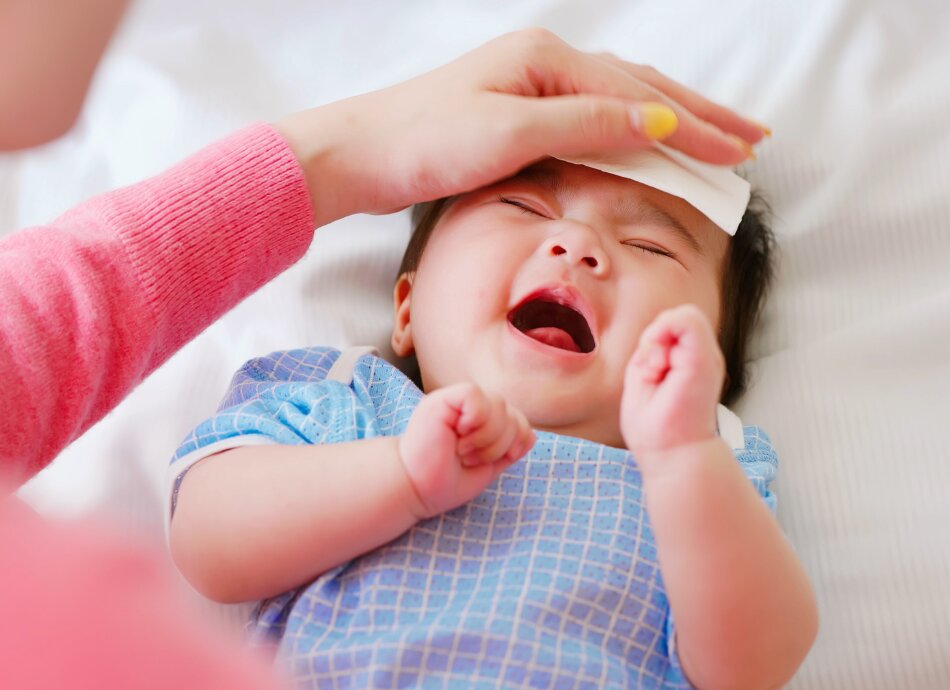You can now add Healthify as a preferred source on Google. Click here to see us when you search Google.
Measles – how to protect your baby
Key points about measles and how to protect your baby
- Measles is a serious illness caused by the measles virus that lives in the nose and throat mucus of an infected person.
- Measles can cause serious complications in children and adults.
- Measles is circulating in Aotearoa New Zealand (from February 2023)
- Here are ways you can protect your baby from measles.

1. Get yourself and your whānau vaccinated
Some babies can't be vaccinated. This might be because they are too young or too sick. The most important thing we can do to protect babies is to make sure that we are immunised against measles, so that we cannot spread the illness to them. If you have children/tamariki over 12 months of age, they can be vaccinated against measles.
Vaccination is highly effective at preventing you catching and spreading measles. If you were born after 1969, you may not be fully protected against measles.
Ask your GP or health provider whether you had your measles vaccinations or if you could be immune. If you’re not sure, play it safe and get immunised. The vaccine is free and you can get it at your GP and some pharmacies.
Read about the measles vaccine (MMR vaccine) and immunity to measles.
Video: How to protect tamariki from measles
Watch a video about measles and the MMR vaccine. This video may take a few moments to load.
2. If there a high risk of exposure to measles, get your baby vaccinated
Babies and children who have not had, or are not able to have the measles immunisation are at greatest risk of getting measles and from having serious complications from the disease.
Babies aged 6–11 months can have the measles vaccination early if there is a high risk of exposure to measles (eg, during outbreaks). These babies will still need measles vaccine at 12 and 15 months because the measles vaccine tends not to work as well in young babies.
3. Good hygiene measures can help prevent the spread
Wash your hands. Just as you would to prevent germs at any time, use soap and water and scrub for at least 20 seconds then dry well. Remind others in your home, or anyone who is near your baby, to do the same. Regularly use a hand sanitiser. Read about how to hand wash.
Limit your baby's exposure to crowds, other children, and anyone with colds.
Wear a mask when in public. Wearing a mask is better than not wearing a mask. Properly fitted and worn N-95 masks are better at protecting you than surgical masks (the commonly available blue ones).
Go germ-free. Disinfect objects and surfaces in your home regularly.
4. Feed your baby breastmilk if possible
Breastmilk has unique antibodies to prevent and fight infections. Read more about breastfeeding.
The following links provide more information on measles:
Measles(external link) Health New Zealand | Te Whatu Ora
Measles immunisation(external link) KidsHealth, NZ
Information about measles factsheet [PDF, 292 KB] Health New Zealand | Te Whatu Ora
Protect against measles factsheet (external link)Health New Zealand | Te Whatu Ora
References
- Protecting children who can't be immunised against measles(external link) Ministry of Health, NZ, 2022
- Measles(external link) Health New Zealand | Te Whatu Ora
- Measles immunisation(external link) KidsHealth, NZ, 2019
- Information about measles factsheet [PDF, 292 KB] Health New Zealand | Te Whatu Ora, 2024
Credits: Healthify Editorial Team. Healthify is brought to you by Health Navigator Charitable Trust.
Reviewed by: Maya Patel, MPharm PGDipClinPharm, Auckland
Last reviewed:
Page last updated:





